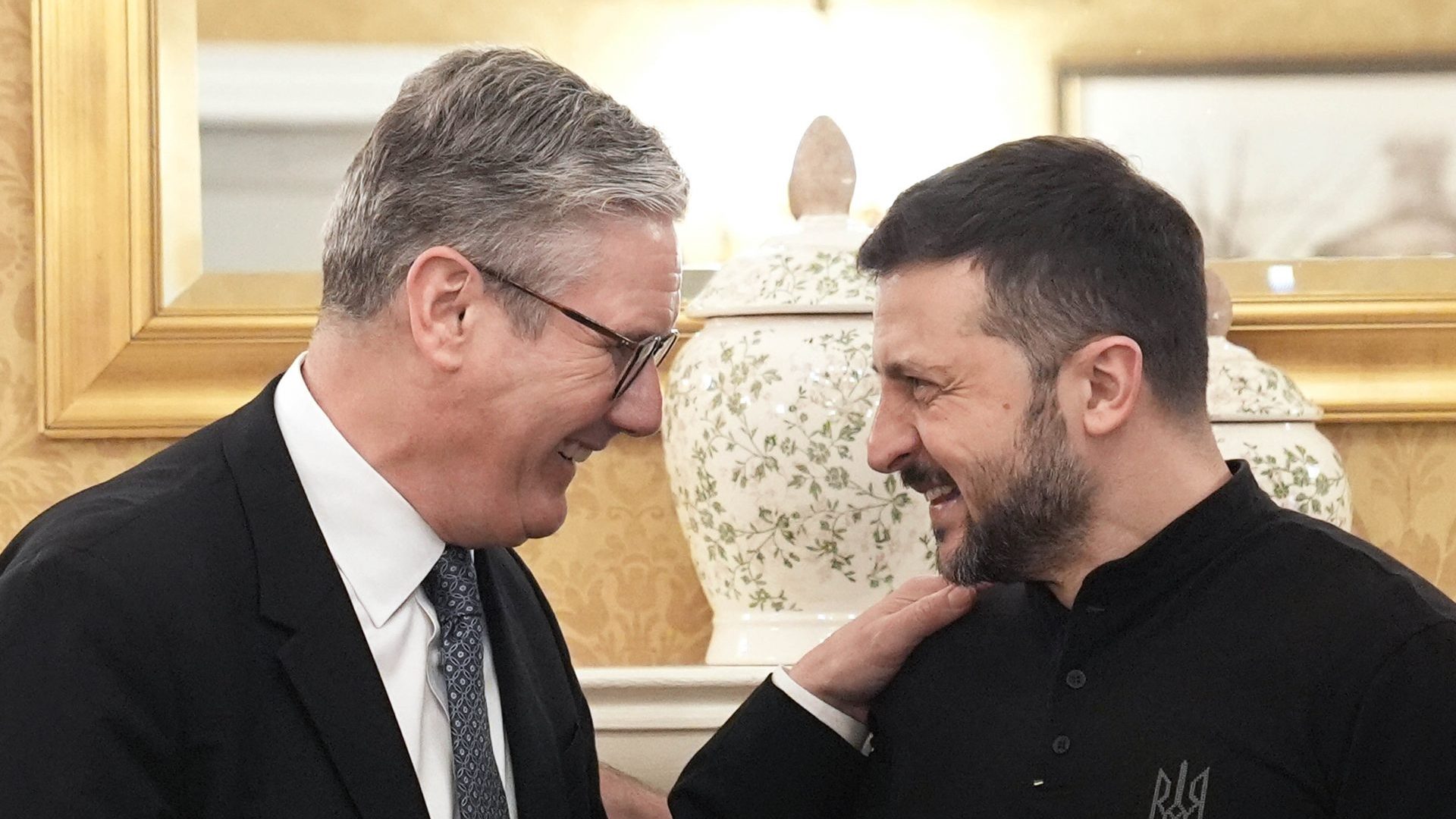To what question can the answer possibly be Kemi Badenoch, Priti Patel and Robert Jenrick?
It would not be “Name some of today’s most impressive political brains”. It could not be “Who might lead a viable opposition to the UK’s current government?”
It might, though, be an understandable response to the query: “Which MPs might begin to look like a viable party to appeal to Reform voters?”
Faced with the option of choosing between Badenoch and Jenrick to succeed Rishi Sunak as Conservative leader, more than a quarter of the 130,000 membership could not even bring themselves to vote. A majority of those who did vote opted for someone renowned for an aggressive approach and an unfortunate habit of making comments which might win the approval of Nigel Farage but which she subsequently tries to disown.
More moderate Tories, Tom Tugendhat and James Cleverly in his latest, more centrist, incarnation, decided to effectively disown Badenoch, refusing to serve in her shadow cabinet. Even allowing for the dearth of talent to choose from, the team she named last week ranged from lacklustre to dangerous.
The current health secretary, Wes Streeting, should find it a breeze to brush off any criticism from his new shadow: Ed Argar, was the prisons minister before the election, since when the full extent of the chaos in that sector has become clear.
The Tories’ new leader might have been demonstrating a sense of humour in making Jenrick shadow justice minister, given the opprobrium he earned for a generous decision to speed up a tax-saving planning application for a major Tory donor. However, Badenoch’s erstwhile rival probably won his new role because, as an avowed opponent of the European Convention on Human Rights, he is in tune with the Faragistes.
Viewed from that point of view, making Priti Patel shadow foreign secretary makes sense, although her past form suggests that it will not be long before she finds herself mired in controversy. With two separate breaches of the ministerial and one forced resignation when in government, at least she as a shadow she can’t cause too much trouble. As a passionate Brexiteer, she should also find common ground with the isolationist President Trump.
He will be aware, however, that these top Tories have little obvious appeal to the majority of UK voters. During the leadership campaign, Cleverly made the perceptive observation that the Conservative Party needed to appear “more normal”. He failed to make it onto the final ballot paper and any quest for normality has been abandoned.
Badenoch justified the fact that her pitch for the leadership was empty of policies with the argument that the Conservatives needed to take time to consider what their party stood for and wanted to achieve. Yet there is no evidence that that will happen.
The party has charged headlong into the traditional role of His Majesty’s Loyal Opposition, fighting and criticising the government at every turn. If Labour had only a narrow margin in the Commons, then it might be worthwhile to take such a confrontational stance at least occasionally.
In the current parliament, however, with Labour’s huge majority, the Conservatives could do exactly what Badenoch had promised, and take a more measured, thoughtful course. That would require a brave and thoughtful leader rather than one who appears to believe that pre-emptive attacks are the only viable strategy and, if they cannot be retrospectively justified, then they should simply be denied.
Reporters may have heard her say that between five and ten per cent of civil servants were so bad that they should be in jail but it turns out that this was supposed to be a joke. Civil servants were never likely to see the funny side, given the way Badenoch had heaped criticism on them when she was a not very successful trade minister.
The determination to oppose sees the Tories shrieking for the reinstatement of the winter fuel allowance, even though it was doled out indiscriminately to the wealthiest as well as poorer pensioners. While the government might have handled the issue with more finesse and was easily portrayed as being brutal and uncaring for putting the most vulnerable elderly in jeopardy, a serious Tory Party would have acknowledged that, at a time when the UK finances are in a dire state, an extra tax-free bung to all pensioners is a ludicrous extravagance.
But Badenoch shows no signs of being thoughtful. Her debut at prime minister’s question time last week succeeded in being both pugnacious and weak simultaneously.
Coming on the day that Donald Trump emerged as the comfortable victor in the contest for the US presidency, she decided to major on derogatory remarks about Trump made by the now foreign secretary, David Lammy, when in opposition. While Lammy’s remarks were certainly not diplomatic, they were far from extreme by the standards of the MAGA man.
Yet in using her first appearance as leader of the opposition to appear such a supporter of the president-elect, Badenoch was sure to win the approval of one small portion of the UK electorate: those who share the views of the ace Trump fan, Nigel Farage, the Reform leader.
The Conservative Party’s new strategy is all too clear: it either becomes Reform or dies.




